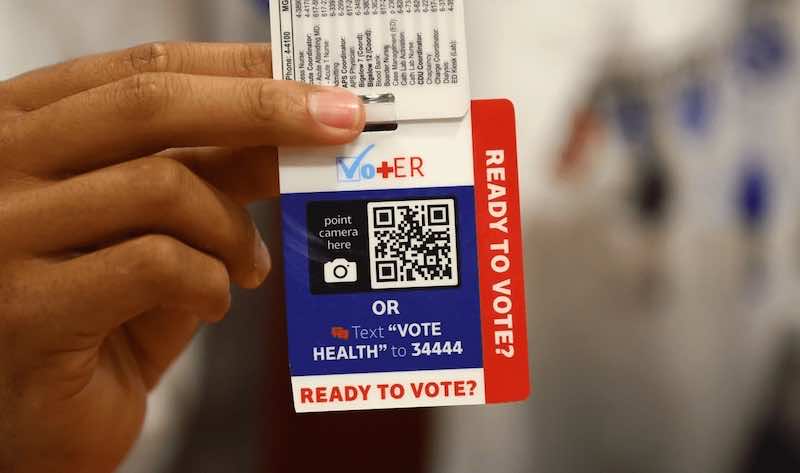Vot-ER’s facility materials are free digital resources created in partnership with hospitals and clinics nationwide.
This suite of materials includes the following:
• A custom ordering link for staff to request physical badges
• Printable posters
• Printable flyers and handouts (e.g., discharge paperwork)
• Digital Signage (e.g., images for waiting room screens)
Join Us

Vot-ER badges are an easy way for health professionals to integrate civic engagement into their practice.

Over 300 hospitals and civic organizations unite to celebrate Civic Health Month in August.

Donate
Help ensure that every eligible American is given the opportunity to vote.